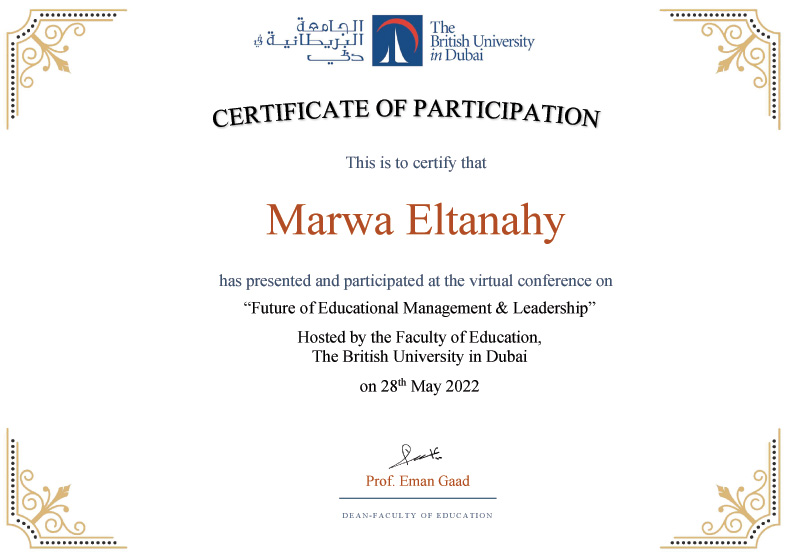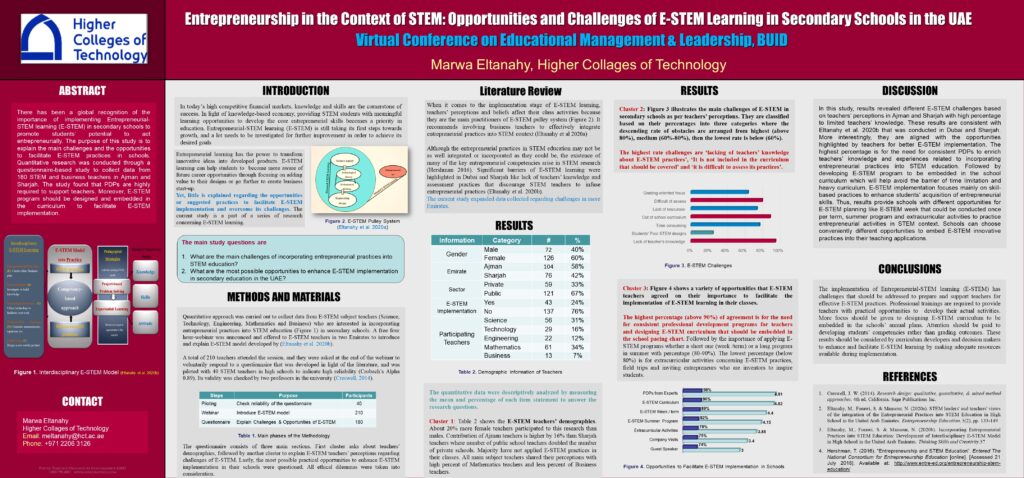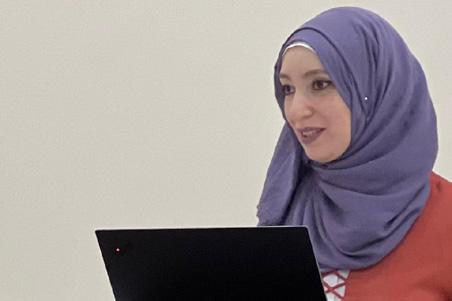Abstract
There has been a global recognition of the importance of incorporating entrepreneurial practices into STEM education through implementing Entrepreneurial-STEM learning (E-STEM) in secondary schools to promote students’ potential to act entrepreneurially. Yet, little is explored regarding the main obstacles of applying E-STEM learning and the opportunities to enhancing its implementation in schools.
This study is a part of series of research studies concerning E-STEM learning. The purpose of this study is to explain the main challenges and the opportunities to facilitate E-STEM learning in secondary schools. The main study questions are: (1) What are the main challenges of incorporating entrepreneurial practices into STEM education? (2) What are the most possible opportunities to enhance E-STEM implementation in secondary education in the UAE?
With regard to interdisciplinarity and social constructivist approach, students can integrate knowledge and practices from different disciplines to build on their knowledge and make new meaning to solve real life problems. Quantitative research was conducted through a questionnaire-based study to collect data from 180 STEM (science, technology, engineering, mathematics) and business teachers in the Emirates of Ajman and Sharjah. A free four hour-webinar was announced and offered to E-STEM teachers in these Emirates to introduce and explain E-STEM model developed by (Eltanahy et al. 2020b). At the end of this webinar, participating teachers were asked to voluntarily respond to a questionnaire that was developed in light of the literature. The study found that PDPs are highly required to support teachers. Moreover, E-STEM programs should be designed and embedded in the curriculum to facilitate E-STEM implementation. Thus, attention should be paid to developing students’ competencies rather than grading outcomes. Curriculum developers and decision makers can make use of these results to enhance and facilitate E-STEM learning and making adequate resources available during implementation. Further studies are needed to investigate effective assessment methods of entrepreneurial-STEM learning in secondary schools. Results of this study revealed that although E-STEM applications in secondary schools is challenging for teachers, a variety of opportunities can be developed and used to facilitate the implementation and eliminate the effect of the proposed challenges.
Reference
Eltanahy, M. (2022). Entrepreneurship in the context of STEM: opportunities and challenges of E-STEM learning in secondary education. Virtual conference of educational management & leadership. 28th May 2022. The British University in Dubai
Keywords:
Entrepreneurial learning; STEM education, Entrepreneurial-STEM learning; STEM reform; Interdisciplinary approach; secondary school; United Arab Emirates
| File Size: 1.91 MB | File Type: PDF | View / Open |


Entrepreneurship in the Context of STEM: Opportunities and Challenges of E-STEM Learning in Secondary Schools in the UAE
Marwa Eltanahy
meltanahy@hct.ac.ae
Higher Collages of Technology










